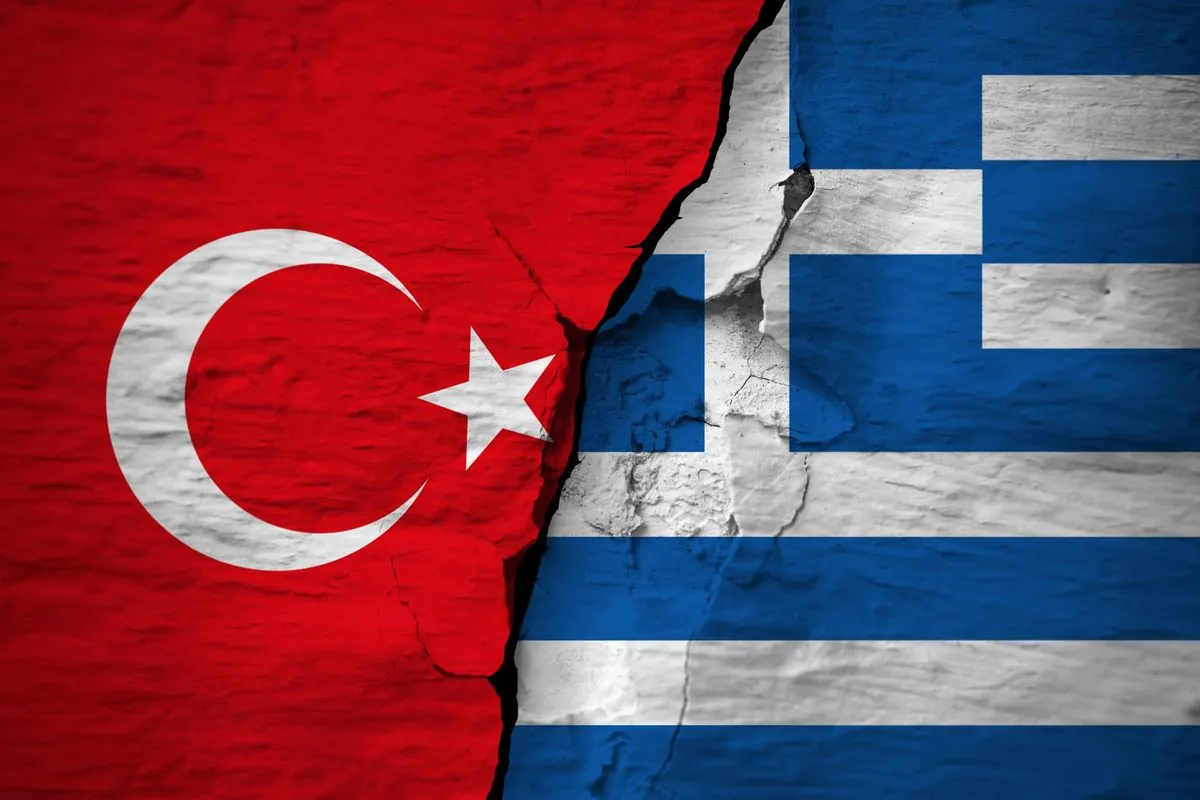Greece and Turkey, long-standing NATO allies with a history of tensions, are considering initiating talks to delineate their maritime boundaries. This development comes as a potential breakthrough in addressing decades-old disputes in the Eastern Mediterranean region.
The Greek Foreign Ministry announced on Wednesday, September 25, 2024, that the two nations will explore the possibility of commencing discussions aimed at demarcating their maritime zones. This move is significant, as it could potentially resolve conflicts over rights to natural resources and infrastructure projects in the area.
The announcement follows a meeting between Greek Prime Minister Kyriakos Mitsotakis and Turkish President Tayyip Erdogan on the sidelines of the United Nations General Assembly in New York on Tuesday. During this encounter, the leaders tasked their respective foreign ministers with assessing whether conditions are favorable for initiating discussions on the continental shelf and exclusive economic zone (EEZ) demarcation.
"The two leaders tasked the foreign ministers to explore whether conditions are favourable to initiate discussions on the demarcation of the continental shelf and exclusive economic zone."
This potential dialogue marks a significant step in Greece-Turkey relations, which have been strained for decades over various issues, including airspace disputes, maritime jurisdiction in the Eastern Mediterranean, and the situation in ethnically divided Cyprus. The two countries have been NATO allies since 1952, but their relationship has been marked by numerous conflicts and near-military confrontations.
The continental shelf in the Aegean Sea has been a major point of contention between Greece and Turkey since the 1970s. The dispute is complicated by the presence of numerous Greek islands in the Aegean, which significantly impact maritime boundary calculations. Turkey's "Blue Homeland" doctrine, asserting Turkish rights in the Eastern Mediterranean and Aegean, has further intensified the disagreement in recent years.
The potential talks are particularly important given the believed presence of significant natural gas reserves in the Eastern Mediterranean. An agreement on maritime zones could clarify rights over these resources and facilitate energy exploration and infrastructure development in the region.
It's worth noting that while Greece has ratified the United Nations Convention on the Law of the Sea (UNCLOS), which defines nations' rights and responsibilities in their use of the world's oceans, Turkey is not a signatory. This difference in legal frameworks has contributed to the complexity of the dispute.
The announcement comes against the backdrop of recent efforts to improve bilateral relations. In 2022, both countries pledged to keep open channels of communication and work on resolving their differences. This latest development suggests a continuation of that positive trend.
However, challenges remain. The Cyprus issue, which has been a major obstacle in Greece-Turkey relations since the Turkish invasion of 1974, continues to be a sensitive topic. Additionally, the refugee crisis, particularly since 2015, has been a point of tension between the two countries.
The Greek Prime Minister's office has announced that foreign ministers from both countries will begin preparations for a high-level meeting scheduled to take place in Ankara in January 2025. This meeting could potentially set the stage for more substantive discussions on maritime demarcation.
As these developments unfold, the international community, particularly the European Union and the United States, will likely be watching closely. The EU has generally supported Greece's positions in its disputes with Turkey, while also recognizing Turkey's strategic importance.
The potential for dialogue on maritime boundaries represents a promising step towards stability in the Eastern Mediterranean. However, given the complex history and multifaceted nature of Greece-Turkey relations, progress is likely to be gradual and require sustained diplomatic efforts from both sides.
